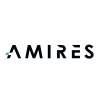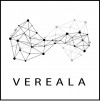The emergence of nanotechnologies prompt strong implications for European society and industry. NIA’s commitment to support the public and multi-stakeholder audiences means addressing the many aspects of the innovation value chain. On the ‘upstream’ level, NIA participate in a numerous forums that engage a wide variety of stakeholders in the wider societal and ethical conversation of nanotechnologies such as OECD WPN.
Furthermore, NIA looks to empower the next generation of nanotechnologists through projects such as INGENIOUS that enhance public engagement skills, consider the societal implications of nanotechnologies and participate wiith in the debate over its impact on society.
NIA also supports efforts to ensure education content is well matched with the needs of the job market and our input is seen in projects such as NanoEIS. This requires active input from industry and NIA run numerous consultations to ensure that employers and wider industry are given a voice when identifying educational 'best practices'.
Alongside NIA is able to leverage its considerable experience over a wide range of nanontechnology sectors to also help construct these 'best practices'. In projects such as NanoDIODE we are committed to developing new, innovative models and tools for outreach and dialogue.
Support for NIA Members:
NIA provide support services to its Members concerning Education & Training.



















